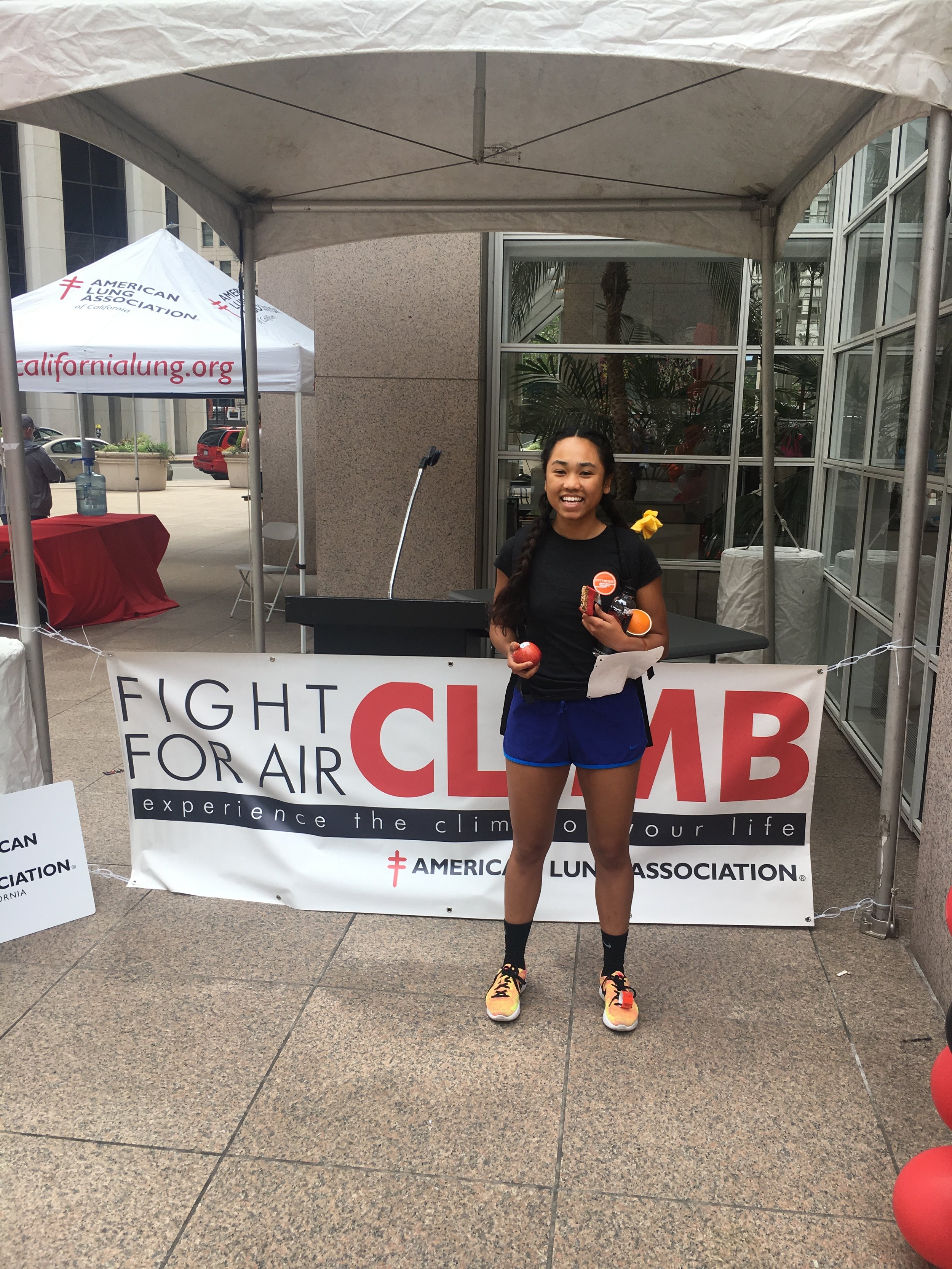American Lung Associations Fight for Air Climb
This Saturday I joined my Fitness SF Team for the American Lung Association's Fight for Air Climb.
I didn’t know much about the event besides that:
- As a key sponsor, Fitness SF subsidized my fees.
- I had to get up 48 flights of stairs
- There were snacks at the top.
Once I finished the race, I ended up feeling inclined to learn a lot more thanks to a stranger that was generous in more ways than one.
I ran a little over 2.5 miles to get to the event, and was nervous that this would come back to haunt me when I started the climb. The camaraderie of my fellow trainers at the starting line helped. People were joking, doing flagpoles using the nearest bus-sign pole for fun, and cheering each person on as they took their turn entering the stairwell.
(Not a lot of people knew me, but in my head they would’ve cheered me on too.)
I finished in about 10 minutes. Faster than I expected it to take to climb 48 flights! Despite the short burst of physical exertion- I was ravenous, and set out to find the snacks.
I saw a buffet table of croissants, muffins, fried chicken- and my eyes lit up when I saw fresh berries and granola. But, my stomach sunk as I got to the front of the line and saw that there was barely any left.
Knowing the few strawberries and 3 baby carrots I had on my plate were not going to cut it- I asked the two gentlemen at the Charles Schwab donor table if I could have some of theirs.
Thankfully, Edwin was willing to share not only his berries, but also a bit of his story.
This was Edwin’s 11th Air climb, and I was thoroughly curious about the motivation behind him coming back to this event for over a decade.
It turned out that for the Air Climb- the cause of supporting lung cancer research was an added bonus. Edwin just genuinely enjoys activities that are primarily intense, short bursts.
A cause that he was particularly passionate about was Alzheimer’s, as both of his grandparents had been affected. He pointed out that causes like lung cancer and Alzheimer's are disproportionately underfunded when compared to causes like breast cancer.
“If you ask 9 out of 10 people on the street- how do you get lung cancer, they’ll say from smoking. This negative association leads people to support causes like lung cancer research less, because they imagine that everyone who had it, has it because of a lifestyle choice. Which isn’t the case.”
“Alzheimer’s on the other hand... there’s not really a group of survivors that can advocate for themselves, and the people who would advocated on their behalf, are typically taking care of them.”
Edwin’s points reminded me of this infographic I saw a while back.
https://nonprofitquarterly.org/2014/09/05/infographic-compares-donations-to-disease-and-finds-big-disparities/
He also made me very curious. Curious about the role of marketing in health research, about the basis of how government funding for health research is allocated, and about disparities in health overall.
I’ve linked some of the articles I checked out initially on the matters, and would love recommendations from you all on resources to learn more!




